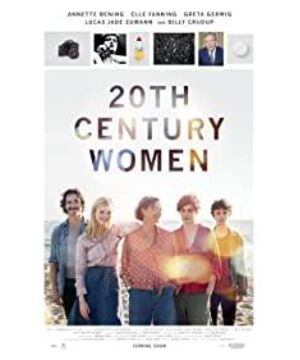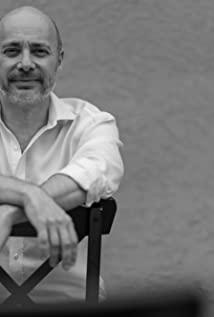Original: Li Ji Fox Hunter1 week ago
This is a movie that was missed from last year's awards season and has been sitting on the hard drive for more than half a year. I was bored and opened it last night. I wanted to browse it in fast-forward mode, but I stayed up until two o'clock.
--- And it's a movie with no story or plot.
"20th Century Women" (20th Century Women) is about the trivial daily life of five people under the same roof in a small town in Southern California in 1979, but it reflects the inner whispers and thunder in the ordinary life of ordinary people in the big era .
Dorothea ( Annette Bening), a single mom who smokes everywhere, suffers from loneliness, grief, and the daily anxiety that pervades her son's puberty.
Her son Jamie , a sensitive 15-year-old boy without a father, silently struggles to grow up, deal with everything in the adult world---sex, feminism, family, independence...
The love and separation between the two generations is the main line of the film. The mother and son love and repel each other at the same time. Their subtle eyes flashes depict the difficulty of growing up - especially for mothers.
She seems to want to make her son strong, and will casually say such golden sentences:
Wondering if you are happy is a great shortcut to just being depressed.
Asking yourself if you're happy can put you on a straight-through train to depression.
Having your heart broken is a tremendous way to learn about this world.
When the heart is broken, it will naturally understand the world.
But she can't ignore the helplessness in her heart, and she can only admit to her son's various behaviors:
I know him less every day.
I don't know him more and more every day.
(Parents whose children have entered adolescence, don't they all feel this way?)
The deep anxiety in her heart was sometimes unbearable for her son, and this fifteen-year-old boy would have this outburst:
Mom, I'm dealing with everything, right now. You are dealing with nothing!
Mom, I'm dealing with everything, and right now, you're dealing with nothing.
This seems to be another film about growing up. In fact, "Twentieth Century Women" has a broader context. And look at the rest of the mother and son's homestay:
Jamie is obsessed with seventeen-year-old Julie (played by Elle Fanning), a fragile and strong girl who is in the confusion and rebellion of adolescence. She explores this fucking world with casual sex that never brings her an orgasm. In her, it was the cold self-destructive tendencies of her youth.
A few years older than her is Abbie (Greta Gerwig), a young woman with red hair like David Bowie, obsessed with punk music, and a radical feminism. She grew up in "everyone's happy" Santa Babara, but was suffocated by that. Her pursuit of art has hit a wall everywhere, and her mother suffered from cervical cancer due to improper medication during pregnancy, making future childbirth a problem.
The only man under the roof is William, a single middle-aged man who is silent and likes to repair houses and make pottery. The single mother once had a relationship with him and hoped that he would play a necessary role as a man in his son's life. Unexpectedly, nothing worked out.
It is these various men and women who form a small society like a family with the mother and son, which together affect the growth of the children and also affect each other. So the movie becomes a group portrait that is much higher than the "growth" theme, and a person is full and credible, and it evokes a lot of empathy.
For example, what Abbie said to Jamie:
Whatever you think your life is going to be like, just know, it's not gonna be anything like that.
No matter what you imagine your life would be like, remember, it's definitely not like that in the end.
Like Julie trying to make Jamie understand what is most important in life:
I think being strong is the most important quality. It's not being vulnerable, it's not being sensitive. It's not even, honestly, it's not even being happy. It's about strength and your durability against the other emotions.
I think the most important quality is being strong. Not vulnerable, not sensitive, and honestly not even happy. It's your strength and patience against those other emotions.
There are so many sentences like this in the movie that the list goes on and on, and it's no wonder the film was nominated for this year's Oscar for Best Original Screenplay.
But when it comes to this, it all seems to be a movie with a literary accent, but it is not. The reason why "Women of the Twentieth Century" dares to have such a generous name is because it places the fragmented inner worlds of five different characters in the great era of 1979. From the frequently flashed documentary images, we will understand that it was a time when the youth movement died out and social changes were waning.
In those times, everyone not only had to deal with their own problems, but also had to deal with an increasingly unfamiliar and isolated world. So when we listen to the whispers in the characters' hearts, we seem to hear the thunder of the era rolling by in the distance.
So this group film without a story has become a vivid portrait of the individual and the era.
And the subject of this portrait turns to optimism in the group dance at the end of the credits. On the California highway in the golden sunset, the mother drives the Beetle and takes her son on a skateboard.
A few years later, Abbie overcame cancer and had a family and two sons; Julie went to Paris with her lover; and Dorathea, a single mother, finally found a man to carry her old with until her death in 1999. She used her life to go through most of the twentieth century from the Great Depression to the millennium.
At the end of the movie, it is the mother who takes a small plane and flies above the blue sky.
It's a huge metaphor for letting us know: yes, in the end, everything will work out.
We will also finally understand: the so-called life is to be free from the shackles that life has originally imposed on you.
It is for the title of this article: "Life is shackles and liberation . "
PS: "Twentieth Century Woman" is the creation of screenwriter and director Mikes Mills based on personal experience, and the characters in the film basically have prototypes. Here's what he said in an interview:
“I use this film to pay tribute to the women who raised me: my mother, my sisters, the girls I loved, the girls I looked up to at school or at the punk scene. They were complex, fun, and powerful, all committed to To make myself more real, free and happy, I am always learning how to get along with the world in the process of constantly exploring freedom.”
View more about 20th Century Women reviews











